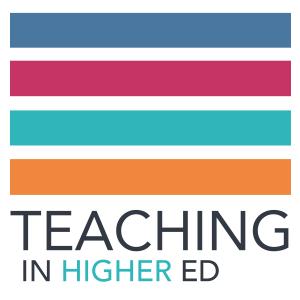Teaching in Higher Ed

#016: Biology, the brain, and learning [PODCAST]
There are plenty of theories about how learning occurs. Today, my guest, Dr. Joshua Eyler, talks biology, the brain, and learning. Podcast notes Biology, the brain, and learning Guest Dr. Joshua Eyler, Director of the Center for Teaching Excellence at Rice University His Bio on Rice University's Center for Teaching Excellence His Blog Follow Josh Eyler on Twitter Initial interest in the field of teaching and learning as a scientific enterprise What the Best College Teachers Do, Ken Bain Brain-based learning Amazing discoveries, but some limitations Gulf was created between the scientists and educators Cherry-picking results Too limiting, looks primarily at neuroscience and cognitive psychology The New Science of Teaching and Learning: Using the Best of Mind, Brain, and Education Science in the Classroom, Tracey Tokuhama-Espinosa Framework for a biological basis of learning Bolster what we are learning from neuroscience to also include evolutionary biology and human development Context about anything that we are learning. The journey of an educator Doesn't see students as subjects of experiments Understanding teaching and learning as a science, really created a bridge Prior knowledge - biological construct Mental models Learning from failure The expert blind spot Making assumptions about prior learning Advice for next steps Mind, brain, and education at Harvard's graduate school of education The Art of Changing the Brain: Enriching the Practice of Teaching by Exploring the Biology of Learning by James E. Zull What I find exciting is that we're starting to ask different kinds of questions now. -Josh Eyler Guest post Josh wrote on MassMedievil.com Finally, nothing but a breath, a comma, separates us from our students–for we do not teach medieval literature, medieval art, medieval history, or medieval archaeology; we teach students about these subjects, about new ways to see their world through the lens of the past. Our field will continue to live and breathe only insofar as we dedicate ourselves to teaching it. And here I look to the wisdom of my dissertation director, Fred Biggs, who once told me that *everything* is a teaching activity—writing, presenting, publishing, but especially our work in the classroom, where we will teach hundreds and even thousands of students over the course of a career. The work we do with our students will push back the boundaries of our knowledge about the Middle Ages ever further, but to accomplish this we need to tear down the tenuous hierarchies of our cl...






 Visit Podcast Website
Visit Podcast Website RSS Podcast Feed
RSS Podcast Feed Subscribe
Subscribe
 Add to MyCast
Add to MyCast